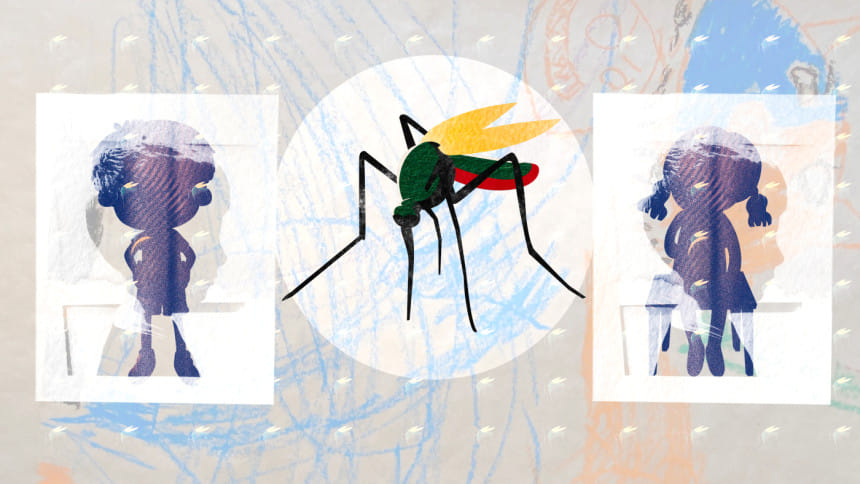How to protect your child from dengue

Dengue has taken an alarming turn in Bangladesh this year amid the Covid-19 pandemic. Anyone from any age group can be infected by dengue, but children are most vulnerable to this mosquito-borne viral infection because of their comparatively weaker immune systems.
Primarily, dengue causes mild symptoms like fever, body rashes, headache, nausea, pain behind the eyes and in the bones, muscles or joints.
Occasionally, it develops into severe dengue -- more common in the ages 6-12, said Dr Rukhsana Parvin, assistant professor of the Department of Paediatrics at Shaheed Suhrawardy Medical College.
Dengue shock syndrome is a dangerous complication of the infection, which is associated with high mortality especially in children, she added.
According to the paediatrician, early detection and access to proper medical care can lower the fatality rates of severe dengue.
Lack of awareness about the disease and its prevention are the main reasons behind the surge in dengue cases. Dengue prevention and control depend on effective mosquito population control measures, she said.
As mentioned earlier, children are vulnerable to the disease and it is important to take necessary precautions to protect them.
Since schools have been closed due to the pandemic, children are mostly staying at home. Parents have to ensure that there is no breeding ground for Aedes mosquitoes in their home and that their children are inside mosquito nets when they are sleeping, Dr Rukhsana said.
Mosquito repellents can also be used to save children from mosquito bites.
If they go out, they should wear long-sleeved shirts, full pants, shoes and socks, she further said, adding that careful fluid management and supportive therapy are the mainstays for the recovery of children infected with dengue.
Dr Jesmin Akter, assistant professor (Neonatology) of Sir Salimullah Medical College, said infants are highly vulnerable to the impacts of dengue.
The warning signs include abdominal pain, persistent vomiting, lethargy, irritability or sudden behavioral changes, bleeding from the gum or nose, passage of black stool, blood in vomit, increased hematocrit and concurrent decrease in platelet count.
If one or more of these symptoms are noticed in a child, they should be admitted to hospital immediately, she suggested.
Since management of severe dengue in children is challenging, it's better to protect your child from mosquitoes.

 For all latest news, follow The Daily Star's Google News channel.
For all latest news, follow The Daily Star's Google News channel. 



Comments